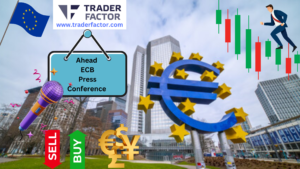According to current news, despite the restrictions placed on Russia, the ruble was performing better than the US dollar and other global currencies. The new development baffled American economists.
The ruble increased the most since 2015, reaching 55.47 versus the dollar. Many others discounted the exchange rate, but Charles Lichfield, the deputy director of the Atlantic Council’s Geoeconomics Center, issued an editorial titled “Don’t overlook the exchange rate: How a strong ruble can insulate Russia”. This development got other economists talking.
The ruble fell to 139 to the dollar in early March as a result of a series of sanctions imposed by the US and the EU on Moscow over its invasion of Ukraine.
The unexpected spike, according to the Kremlin, was “evidence” that the Western sanctions were ineffective.
According to reports, researchers and economists claim that Russia’s financial records have been altered to make it appear as though the ruble is strengthening versus the dollar.
Russia’s GDP is collapsing due to high inflation, said Jacob Broe
Jake Broe informed his 150k YouTube subscribers that the “Russian economy is currently failing, inflation is high, unemployment is going up, salaries are going down, and the GDP of the Russian economy is collapsing.”
The similar argument may be made regarding whether or not the US economy is headed for a recession.
The unemployment rate is at an all-time high, productivity is plummeting, inflation has reached its worst level in 40 years, and the US GDP dropped noticeably in the first quarter of 2022.
The Russian finance ministry and central bank may have fudged data to make the ruble appear stronger, according to Broe. The Federal Reserve and the US government can both be accused of disseminating incorrect information.
According to a different Armstrong Economics analysis, Putin is selling more oil at a higher price because the boycott of Russian oil has failed miserably.
Russian oil shipments increased by 620,000 b/d to 8.1 million b/d in April, according to Martin Armstrong, writer at Armstrong Economics.
The international embargo was partially offset by India (+730,000 b/d) and Turkey (+180 b/d), but the EU continued to be the leading importer despite a dramatic drop in shipments.
The embargo has utterly backfired on the West and has strengthened the Russian economy, according to the IEA assessment that Russian oil exports increased by over 50% YoY during the first four months of the year.
According to reports, India brokers Russian oil by importing it from Russia, refining it, and then re-exporting it to the US, France, Italy, and the UK at a profit. India profits handsomely from the sanctions by doing this.
Some nations disregarded the restrictions and bought oil from Russia, according to a recent report by Bitcoin.com News.
Russia has started selling crude oil to China. Since banks no longer extend credit to the company, ISAB, the largest refinery in Italy, is sourcing crude oil from Russia.
Since 2021, China has become Russia’s largest single oil customer. According to data, Russia sells 1.6 million barrels of oil to China every day.
In the interim, Europe faces an impending oil scarcity. The Economist claims that Europe is suffering as a result of the spike in oil prices. The intention was to cripple the Russian economy as a result of their “war,” but now government officials worry that the energy sanctions might backfire.
Disclaimer:
All information has been prepared by TraderFactor or partners. The information does not contain a record of TraderFactor or partner’s prices or an offer of or solicitation for a transaction in any financial instrument. No representation or warranty is given as to the accuracy or completeness of this information. Any material provided does not have regard to the specific investment objective and financial situation of any person who may read it. Past performance is not a reliable indicator of future performance.
Author
-

Phyllis Wangui is a Financial Analyst and News Editor with qualifications in accounting and economics. She has over 20 years of banking and accounting experience, during which she has gained extensive knowledge of the forex, stock news, stock market, forex analysis, cryptos and foreign exchange industries. Phyllis is an avid commentator on these topics and loves to share her insights with others through financial publications and social media platforms.
View all posts



















